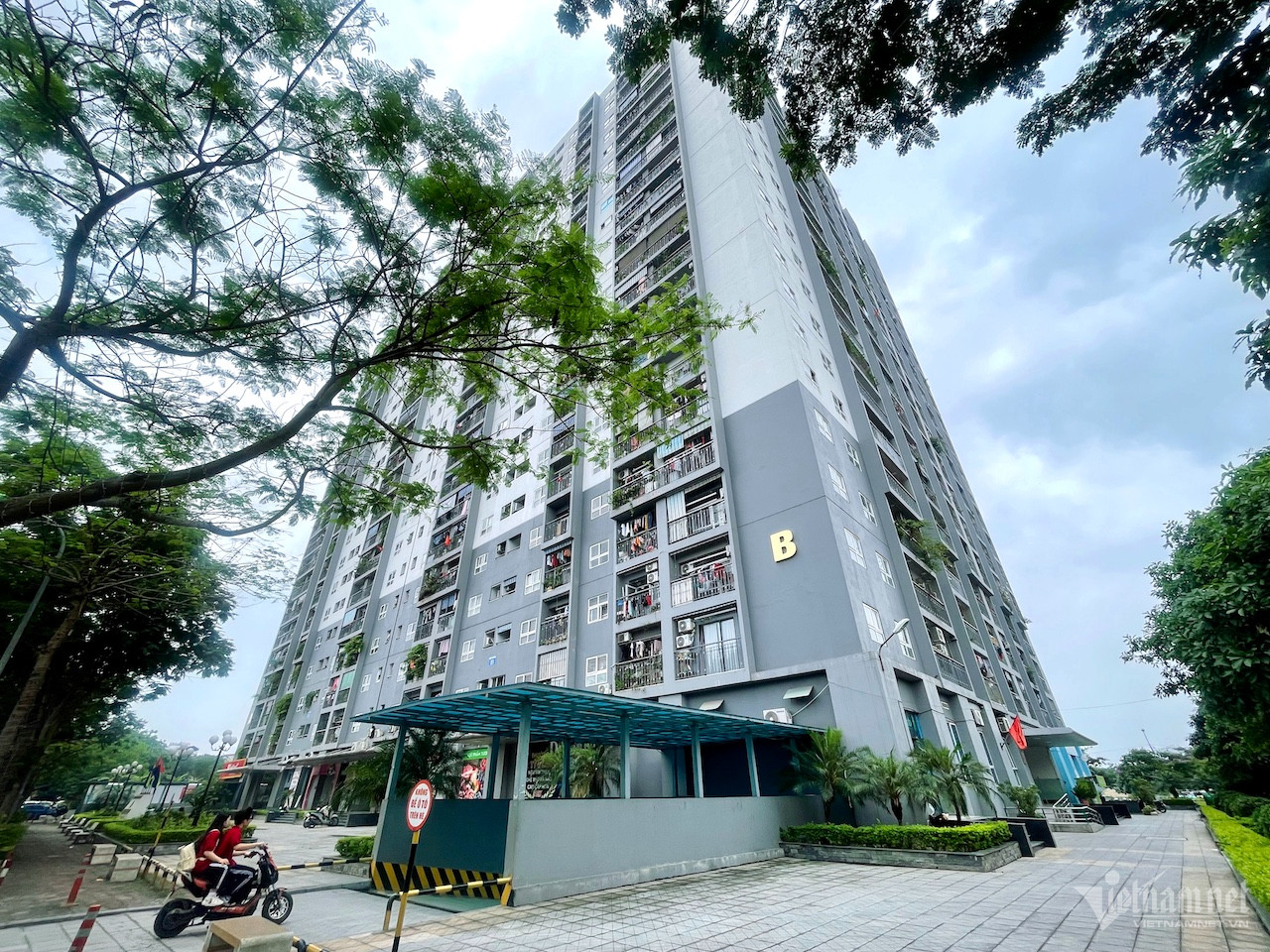One of the major changes in the draft is the removal of residency criteria.
Specifically, for housing conditions, the draft decree states: In the case of individuals who do not yet own a house owned by themselves, it is determined when the subject specified in Clause 1 of Article 77 of the Law on Housing and their spouse is not named in the Certificate of land use rights, ownership of houses and other assets attached to land in the province, centrally run cities where the social housing project is located.
Under the current regulations, beneficiaries of social housing support must have permanent registration in the province, centrally run cities where social housing is available; in case of no permanent registration, they must have temporary registration for one year or more in this province, centrally run cities.
In addition, the standard for average housing area according to current regulations is below 10m2, while the draft decree increases it to below 15m2.
The income criteria also involve changes.
The draft decree stipulates that the conditions must ensure that the average monthly income of the applicant and their spouse does not exceed 15 million VND/month according to the wage rate, salary rate confirmed by the agency, unit where the subject works; The income conditions shall be determined for the three consecutive years prior to the year of buying or renting social housing.
Under the current regulations, buyers of social housing must belong to the category of not having to pay regular income tax as regulated by the law on personal income tax, which means not exceeding 11 million VND/month.

A social housing project in Hanoi. Photo: Hong Khanh |
Ms. Minh Thuy (Ha Dong, Hanoi) agrees with the provisions in the draft decree, which remove the residency criteria and adjust the income level. This will simplify and streamline the process of verifying the applicant’s eligibility and conditions.
In accordance with the draft decree, the latest price of social housing in Hanoi was nearly 20 million VND/m2. According to the current regulations, all members of the household must be exempt from personal income tax, meaning not exceeding 11 million VND per month.
“Calculating based on a social housing unit with a price of about 1.5 billion VND, buyers have to pay a down payment of 20-30%, equivalent to 300-450 million VND. The rest is financed by a bank loan from the 120 trillion VND package, with a monthly repayment of principal and interest averaging over 10 million VND, in addition to living expenses and the cost of education for the children. Considering that the total income of the couple does not exceed 22 million VND/month, it is very difficult,” Ms. Thuy shared.
A social housing developer in Hanoi said that in the past 5 years, the price of social housing has nearly doubled.
Previously, in Hanoi, the price of social housing was about 13-15 million VND/m2, but now it has increased to nearly 20 million VND/m2.
The low income threshold leads to the situation where buyers have to allocate more than half of their monthly income for the bank loan. This makes it difficult for low-income individuals to find proper housing.
The developer believes that the adjustments proposed in the draft decree are reasonable.
In addition to the notable changes mentioned above, the draft decree also proposes a series of changes regarding land funds for developing social housing in commercial housing investment projects; incentives for social housing investment project developers; types of housing and area standards for social housing; determination of selling prices, selling and renting prices for social housing; procedures for selling, renting, buying, and leasing social housing,…
|
The Ministry of Construction is collecting public opinions on the draft decree regulating the development and management of social housing to provide a legal basis for localities as well as organizations and individuals involved in the management and development of social housing. |
Hong Khanh












